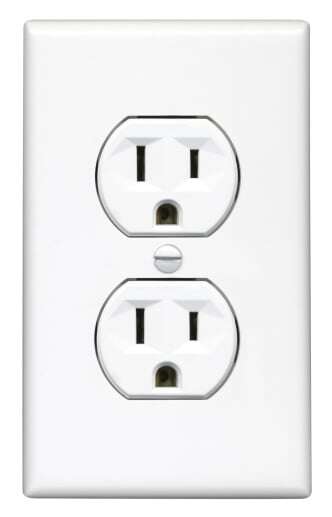 When a circuit breaker trips, it shuts off power to certain parts of a home. This is a frustrating process to go through repeatedly – it can reset clocks and appliances, and leaves you in the dark until you flip the breaker back on.
When a circuit breaker trips, it shuts off power to certain parts of a home. This is a frustrating process to go through repeatedly – it can reset clocks and appliances, and leaves you in the dark until you flip the breaker back on.
Even though it may be getting on your last nerve, there are two things to remember when this is happening:
- Circuit breakers trip and are designed this way for your safety, to help avoid electrical fires and shock hazards.
- When a circuit breaker trips, it likely means there is something going on that needs to be addressed for your safety.
To give you a good idea of why a circuit breaker may be tripping, we compiled a few possibilities from TheSpruce.com:
Reason #1: Overloaded Circuit
“An overloaded circuit is the most common reason for a circuit breaker tripping. It occurs when a circuit is attempting to draw a greater electrical load than it is intended to carry. When too many appliances or light fixtures are operating at the same time, the internal sensing mechanism in the circuit breaker heats up, and the breaker "trips," usually by means of a spring-loaded component within the breaker. This breaks the continuous pathway of the breaker and renders the circuit inactive. The circuit remains dead until the breaker lever is reset to the ON position, which also re-arms the internal spring mechanism.”
Reason #2: Short Circuit
“A short circuit is a more serious reason for a breaker tripping. A "hard short" is caused when the hot wire (black) touches a neutral wire (white). In terms of the physics involved, a short circuit allows for a sudden unimpeded flow of electricity due to lowered resistance, and this sudden increase in current flow within the breaker causes the tripping mechanism to activate.
But sometimes a short circuit occurs not because of the circuit wiring at all, but because of a wiring problem in an appliance or device plugged into an outlet along the circuit. Short circuits, therefore, can be a bit difficult to diagnose and fix and may call for the help of a professional electrician.
The presence of a short circuit can be indicated when a circuit breaker trips again instantly after you reset it.”
Other Reasons a Circuit Breaker May Trip:
Ground Fault
“A particular type of short circuit, a "ground-fault," occurs if a hot wire comes in contact with a ground wire or a metal wall box or touches wood framing members. Ground faults can be especially dangerous when they occur in areas with high levels of moisture, such as kitchens or bathrooms, or in outdoor locations. A ground fault carries a definite risk of shock.
There are steps you can take to identify and fix a ground fault, but also essential steps you should take to prevent one from occurring in the first place. For example, in areas where direct contact with the ground or water is possible, building codes may require that outlets be protected with GFCIs (ground-fault circuit interrupters).”
Arc Fault
“In recent years, the National Electrical Code, the model code on which most local electrical codes are based, has gradually increased requirements for a special type of circuit breaker, known as an arc-fault circuit interrupter (AFCI)…. AFCI breakers are reset in the same manner as ordinary breakers. Repeated tripping is usually an indication that there are loose wire connections somewhere along the circuit, causing repeated arcing.”
Read the entire article at TheSpruce.com.
At Experts In Your Home we always say that safety needs to come first. This is especially true when talking about electrical issues that could pose a fire or shock hazard. If you’re unsure of what is causing your circuit breaker to trip, give our licensed electricians a call today.








